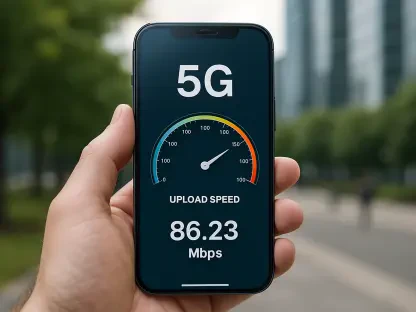Uganda’s recent clampdown on unauthorized Wi-Fi hotspot operators has sparked significant discussion over its impact on affordable internet access. These hotspot vendors have emerged as an accessible option for Ugandans, particularly for students and those from lower-income backgrounds who view traditional data bundles from major telecommunication firms as financially prohibitive. The Uganda Communications Commission (UCC) has targeted these operators, arguing that their operations not only undercut the prices set by licensed Internet Service Providers (ISPs) but also disrupt fair competition. This issue raises questions about the balance between regulatory compliance and the availability of affordable internet to those who depend on these informal networks. The UCC’s response, guided by the Uganda Communications Act Cap 103, seeks to restore order in the industry, pushing for a fair market environment while also addressing concerns of accessibility and cost.
Regulatory Dynamics and Enforced Compliance
The UCC’s investigation highlighted multiple issues within the wireless internet marketplace, particularly focusing on practices that blur the lines between legal and illegal operations. These findings have spurred regulatory actions aimed at clarifying these boundaries. In a significant regulatory move, licensed operators are now obligated to maintain precise records of entities purchasing bulk internet bundles for resale purposes. This mandate includes the submission of updated lists of authorized reseller agents by a specified deadline, while quarterly reports must outline the agents providing Wi-Fi services under these operators’ licenses. This strategic approach intends to eliminate ambiguities that have persisted within the sector, ensuring that all operators within the network adhere to laid-out regulations and contribute equitably to the industry’s financial ecosystem.
The UCC’s crackdown is a dual-purpose initiative, targeting not only unlicensed operators but also enforcing stricter compliance directives among licensed ISPs. By demanding comprehensive reports and audits, the commission emphasizes the importance of transparent operations. While addressing the sector’s varied challenges, including market disruptions caused by illegal competition, these measures also aim to reassert the UCC’s regulatory oversight. However, the question remains whether these actions will effectively bridge the divide between ensuring fair competition and maintaining low-cost access to the internet. Concerns linger regarding the potential for increased prices in a more regulated environment and whether such enforcement actions will inadvertently crowd out the operators providing vital connectivity options for underserved communities.
Balancing Affordability and Market Equity
The growth of Wi-Fi hotspots in Uganda reflects broader trends in urban and semi-urban areas, where dynamic models cater to varying consumer needs by offering price-accessible internet solutions. For many operators, the Wi-Fi hotspot business is an attractive opportunity due to its low entry barriers and the ever-present demand for cost-effective connectivity solutions. However, the success of these informal services presents significant challenges to licensed ISPs, which face difficulties in recouping the substantial investments necessary for infrastructure development and regulatory compliance. The disparity between regulated and unregulated sectors has led to significant revenue losses, prompting the UCC to step in with decisive interventions aimed at bolstering market fairness and ensuring long-term economic sustainability.
The recent UCC directives underscore the ongoing tension between informal yet affordable service provision and the formal sector’s compliance-driven operations. With the commission’s efforts focused on rooting out illicit practices, it seeks to create an environment conducive to fair competition while supporting sustainable industry development. Nevertheless, the crackdown raises important questions about the potential trade-offs between restrictive regulations and favorable market conditions for lower-income individuals. Efforts to enforce these regulations must strike a delicate balance between maintaining regulatory standards and safeguarding access to affordable internet, which remains a critical utility for many Ugandans striving for better educational and economic opportunities.
Future Considerations and Implications
The UCC’s investigation into the wireless internet marketplace pinpointed issues that blur the line between legal and illegal operations, prompting regulatory measures to clarify these boundaries. Licensed operators are now required to keep detailed records of entities purchasing bulk internet bundles for resale. This requirement includes submitting updated lists of authorized reseller agents by a set deadline and providing quarterly reports that specify which agents offer Wi-Fi services under the operators’ licenses. These strategies aim to dissolve ambiguities, ensure compliance with set regulations, and foster equitable contribution to the industry’s financial ecosystem.
The UCC’s initiative targets not only unlawfully operating entities but also enforces stricter compliance among licensed ISPs. By mandating detailed reports, the commission underscores the significance of transparency. Although these measures address challenges like illegal competition disrupting the market and reinforce the UCC’s oversight, skepticism remains. Concerns arise about whether these actions will harmonize fair competition and affordable internet or inadvertently lead to higher prices and hinder connectivity for underserved communities.









